Domestic Violence & Poverty: A Stark Choice for Women
By Rediff Money Desk, BRISBANE May 23, 2024 11:46
Domestic violence survivors face a stark choice: stay in an abusive relationship or risk poverty. This article explores the financial hardship faced by women fleeing violence and the need for increased support.
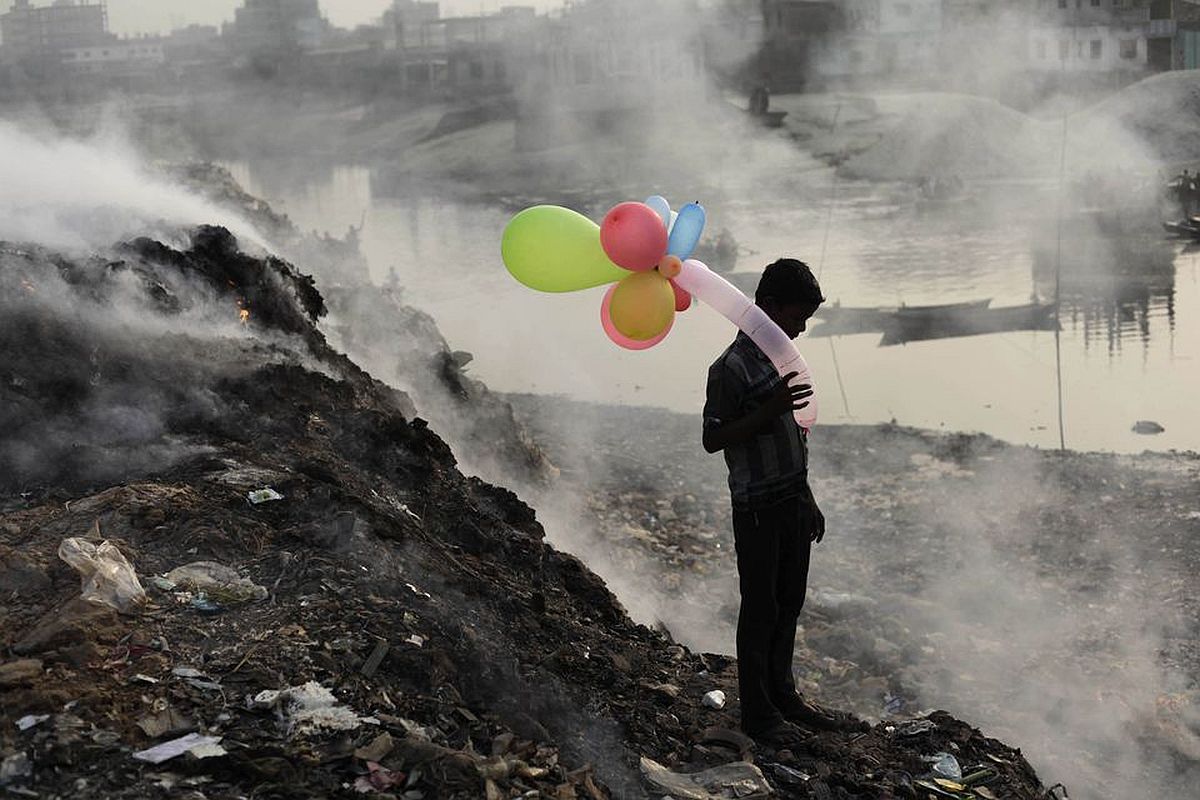
Brisbane, May 23 (360info) For domestic violence survivors, the cost of living crisis makes leaving an abusive relationship harder than ever.
Jessica*, a domestic violence survivor in her late 30s, already spends almost one-third of her income on rent. Now, the single mother-of-two from Brisbane is facing a further rent increase and she doesn't know how she'll cope.
When rent went up, it went from USD 380 to USD 430, she says.
It is a nightmare, so I'm worried because if he puts it up again, I can't afford it.
I'm only paying it because I don't want to be homeless. I don't want my kids to be homeless. I don't want to be living out of my car.
As the cost of living crisis wears on, the Australian government has announced AUSD 925 million to help victims of violence leave abusive relationships. This takes the form of leaving violence payments' of USD 5,000, intended to help women escape abusive relationships.
It's a move welcomed by many survivor advocates especially as an increasing number of families struggle to keep a roof over their head. In October 2023, a CoreLogic report showed national rents had risen for the past 38 months straight. Rent prices were 30.4 per cent higher than in July 2020 at the time of that report.
This crisis is especially acute for those experiencing domestic, family, or sexual violence.
In September 2023, I spoke to 10 victim-survivors , including Jessica, as part of my ongoing research on the relationship between gender-based violence and poverty. Most of the women had children, and many described the stress associated with cost of living increases.
Women experiencing severe intimate partner violence are more than three times as likely to move into financial hardship than women who are not experiencing any intimate partner violence. Victim-survivors of domestic, family, or sexual violence are also one of the highest-risk groups for homelessness.
In 2021, it was estimated to cost AUSD 18,000 for a victim-survivor to leave a violent relationship and establish safety a figure that would have now increased thanks to rising rents, utilities and other living costs.
In increasingly precarious times, women in an abusive relationship face a stark choice: to stay in the violent relationship, or leave and risk entering poverty.
While the USD 5,000 government payments will help meet the costs of leaving a relationship and access services, risk assessments and safety planning, they won't cover even one-third of the total cost of fleeing abuse in many cases.
Adding to this, many perpetrators engage in financial abuse using money or finances to hurt or control their victim. This form of abuse has increased over the past three years, banks have reported, and service providers only expect violence to increase as the cost of living crisis continues.
Often, perpetrators weaponise financial processes after separation to retain control over their ex-partner. Mothers relying on financial support to care for their children are especially vulnerable.
In a recent study from Swinburne University, 80 per cent of women reported their ex-partner had replaced physical abuse with financial abuse via child support after separating.
According to the federal government, approximately AUSD 1.7 billion in child support has gone unpaid since Australia's child support scheme was introduced in 1988.
Worryingly, this figure excludes the 50 per cent of families who opt to collect their child support privately, rather than through the agency, meaning the true figure is much higher.
The government does not have any data on these parents, but anecdotal evidence suggests they are often not receiving the financial support for which they are eligible. Many women fleeing a violent relationship are likely to fall into this category.
Victim-survivors can also be left with debts accrued in their name by abusive ex-partners.
For example, the ex-partner of one of the women I interviewed had committed fraud of nearly AUSD 100,000 in her name.
While this problem is undoubtedly wicked, it is not insurmountable.
Poverty is not the inevitable outcome of violence and it can be reduced with gender-responsive policies, laws and services, increased investment in social housing and more funding of the domestic, family, or sexual violence services sector.
The women I interviewed were unanimous that the support they had received from specialist services had been instrumental in escaping their psychological entrapment and rebuilding strength and confidence. This enabled them to enter the workforce or commence studying, leading to a more secure future for them and their children.
However, funding of these specialist services is not keeping pace with demand.
Many survivor advocates have questioned why the government doesn't just increase funding to these frontline services as part of its newly announced response to the national crisis of gender violence. Many victim-survivors described waiting longer than they should to access this support and had to exit services before they were ready.
Victim-survivors also acknowledged that there was only so much these services could be expected to do. Broader, system-level changes could ameliorate the impacts of violence on the poverty of women and children.
Mainstream services such as banks, real estate agents, utility companies, employers, educational institutions, Centrelink and the Child Support Agency encounter victim-survivors of domestic, family or sexual violence every day. Ensuring these services are gender-responsive and their workers are educated on trauma will make it easier to stop financial abuse and support victim-survivors to recover from its effects.
Increased investment in long-term social housing would ensure every person fleeing domestic violence has a safe, affordable, and stable place to call home.
The Australian Government has signalled its commitment to support victim-survivors to recover from the economic impacts of violence.
Implementing the First Action Plan of the National Plan to End Violence against Women and Children 202223, and the recommendations of a recently released report of the Women's Economic Equality Taskforce, would both be an excellent place to start.
* Name changed for privacy reasons. (360info.org)
Jessica*, a domestic violence survivor in her late 30s, already spends almost one-third of her income on rent. Now, the single mother-of-two from Brisbane is facing a further rent increase and she doesn't know how she'll cope.
When rent went up, it went from USD 380 to USD 430, she says.
It is a nightmare, so I'm worried because if he puts it up again, I can't afford it.
I'm only paying it because I don't want to be homeless. I don't want my kids to be homeless. I don't want to be living out of my car.
As the cost of living crisis wears on, the Australian government has announced AUSD 925 million to help victims of violence leave abusive relationships. This takes the form of leaving violence payments' of USD 5,000, intended to help women escape abusive relationships.
It's a move welcomed by many survivor advocates especially as an increasing number of families struggle to keep a roof over their head. In October 2023, a CoreLogic report showed national rents had risen for the past 38 months straight. Rent prices were 30.4 per cent higher than in July 2020 at the time of that report.
This crisis is especially acute for those experiencing domestic, family, or sexual violence.
In September 2023, I spoke to 10 victim-survivors , including Jessica, as part of my ongoing research on the relationship between gender-based violence and poverty. Most of the women had children, and many described the stress associated with cost of living increases.
Women experiencing severe intimate partner violence are more than three times as likely to move into financial hardship than women who are not experiencing any intimate partner violence. Victim-survivors of domestic, family, or sexual violence are also one of the highest-risk groups for homelessness.
In 2021, it was estimated to cost AUSD 18,000 for a victim-survivor to leave a violent relationship and establish safety a figure that would have now increased thanks to rising rents, utilities and other living costs.
In increasingly precarious times, women in an abusive relationship face a stark choice: to stay in the violent relationship, or leave and risk entering poverty.
While the USD 5,000 government payments will help meet the costs of leaving a relationship and access services, risk assessments and safety planning, they won't cover even one-third of the total cost of fleeing abuse in many cases.
Adding to this, many perpetrators engage in financial abuse using money or finances to hurt or control their victim. This form of abuse has increased over the past three years, banks have reported, and service providers only expect violence to increase as the cost of living crisis continues.
Often, perpetrators weaponise financial processes after separation to retain control over their ex-partner. Mothers relying on financial support to care for their children are especially vulnerable.
In a recent study from Swinburne University, 80 per cent of women reported their ex-partner had replaced physical abuse with financial abuse via child support after separating.
According to the federal government, approximately AUSD 1.7 billion in child support has gone unpaid since Australia's child support scheme was introduced in 1988.
Worryingly, this figure excludes the 50 per cent of families who opt to collect their child support privately, rather than through the agency, meaning the true figure is much higher.
The government does not have any data on these parents, but anecdotal evidence suggests they are often not receiving the financial support for which they are eligible. Many women fleeing a violent relationship are likely to fall into this category.
Victim-survivors can also be left with debts accrued in their name by abusive ex-partners.
For example, the ex-partner of one of the women I interviewed had committed fraud of nearly AUSD 100,000 in her name.
While this problem is undoubtedly wicked, it is not insurmountable.
Poverty is not the inevitable outcome of violence and it can be reduced with gender-responsive policies, laws and services, increased investment in social housing and more funding of the domestic, family, or sexual violence services sector.
The women I interviewed were unanimous that the support they had received from specialist services had been instrumental in escaping their psychological entrapment and rebuilding strength and confidence. This enabled them to enter the workforce or commence studying, leading to a more secure future for them and their children.
However, funding of these specialist services is not keeping pace with demand.
Many survivor advocates have questioned why the government doesn't just increase funding to these frontline services as part of its newly announced response to the national crisis of gender violence. Many victim-survivors described waiting longer than they should to access this support and had to exit services before they were ready.
Victim-survivors also acknowledged that there was only so much these services could be expected to do. Broader, system-level changes could ameliorate the impacts of violence on the poverty of women and children.
Mainstream services such as banks, real estate agents, utility companies, employers, educational institutions, Centrelink and the Child Support Agency encounter victim-survivors of domestic, family or sexual violence every day. Ensuring these services are gender-responsive and their workers are educated on trauma will make it easier to stop financial abuse and support victim-survivors to recover from its effects.
Increased investment in long-term social housing would ensure every person fleeing domestic violence has a safe, affordable, and stable place to call home.
The Australian Government has signalled its commitment to support victim-survivors to recover from the economic impacts of violence.
Implementing the First Action Plan of the National Plan to End Violence against Women and Children 202223, and the recommendations of a recently released report of the Women's Economic Equality Taskforce, would both be an excellent place to start.
* Name changed for privacy reasons. (360info.org)
Read More On:
DISCLAIMER - This article is from a syndicated feed. The original source is responsible for accuracy, views & content ownership. Views expressed may not reflect those of rediff.com India Limited.
You May Like To Read
TODAY'S MOST TRADED COMPANIES
- Company Name
- Price
- Volume
- GTL Infrastructure
- 2.93 ( -4.87)
- 226206286
- IFL Enterprises
- 1.30 (+ 4.84)
- 81461564
- Vodafone Idea L
- 16.79 (+ 0.66)
- 67447398
- NCL Research
- 0.95 ( -4.04)
- 31996628
- Franklin Industries
- 3.73 (+ 3.32)
- 21511209
MORE NEWS

Navi Mumbai Airport ILS Signal Testing Begins
The Airports Authority of India (AAI) has begun ILS signal testing at the...

Air India VRS for Non-Flying Staff Ahead of...
Air India has announced a voluntary retirement scheme (VRS) and voluntary separation...
Fisher Groups Oppose WTO Fisheries Subsidy Talks
Small-scale fisher groups from India, Indonesia, and Bangladesh demand WTO keep...






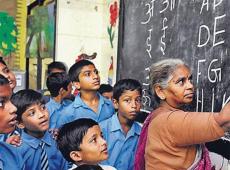
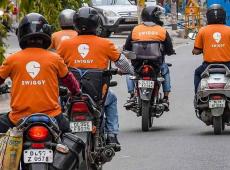
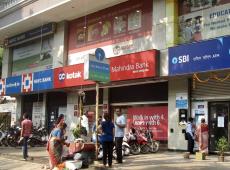
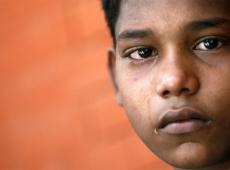
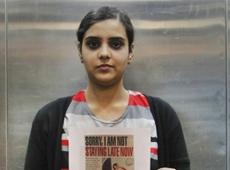

 © 2024 Rediff.com India Limited. All rights reserved.
© 2024 Rediff.com India Limited. All rights reserved.